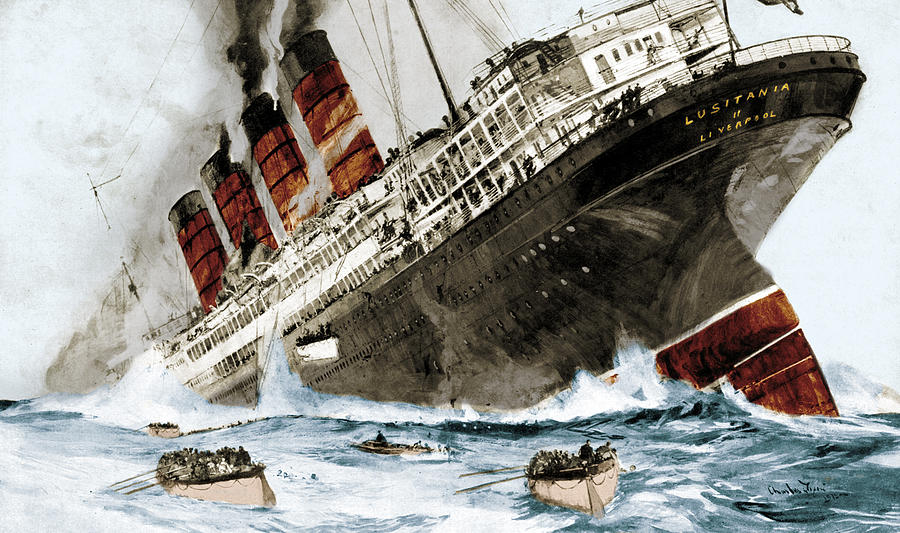
On May 7, 1915, some nine months after the start of World War I, a German U-boat torpedoed the passenger liner Lusitania as it sailed in neutral waters off the southern coast of Ireland.
The ship vanished in just 18 minutes. Nearly 1,200 passengers died.
A third of the victims were women and children, and 128 of those who were lost were Americans. Since the United States wasn’t a combatant in the war – that wouldn’t happen for two more years – Americans were outraged.
It didn’t help that Germany made the outrageous decision to declare a national holiday to celebrate the sinking of a passenger ship that couldn’t fight back.
All of a sudden, as social historian Bill Bryson documents in his book One Summer, it was dangerous to be a German living in America.
A German man in St. Louis who was believed to have spoken against America was seized by a mob, tied up in an American flag, and hanged. A jury later absolved the mob leaders by declaring their actions constituted a “patriotic murder.”
Bryson writes, “German businesses were boycotted or had bricks hurled through their windows. Restaurants stopped serving German food, or gave it non-German names; sauerkraut famously became liberty cabbage. Some communities made it illegal to play music by German composers [that meant farewell to Bach and Beethoven]. Iowa, to be on the safe side, outlawed conversations in any language other than English in schools, at church, or even over the telephone.”
German Lutherans and others protested that they would have to give up church services in their native languages. That’s when Iowa Governor William L. Harding made one of the strangest statements of the 20th century:
“There is no use in anyone wasting his time praying in other languages than English. God is listening only to the English tongue.”
This would come as news to St. Augustine, who prayed in Latin; to Watchman Nee, whose devotions were in Chinese; to Pope Francis, who regularly prays in his native Spanish; and to Jesus of Nazareth, whom we presume talked to his Father in heaven on a daily basis in Hebrew and Aramaic.
Aside from the important lesson of not looking to elected officials for theological pointers, this impassioned chapter in American history reminds us of something profound: Jesus calls us not to blast our enemies, but to love them.
Praying for those who misunderstand and misrepresent us, who hurt us and hate us, is at the core of Jesus’ Sermon on the Mount (see Matthew 5:43-48).
This is one of the most counterintuitive choices for human beings of every generation. Just ask anyone who has ever tried it.
Where do we even start?
If you’re hoping to make a New Year’s resolution that will fundamentally change your life, ask God for the grace to pray, at least once a day in 2022, the hardest prayer.
Pray that the family member who snubbed you at Christmas will be blessed with God’s presence. Pray that the military leaders, presidents, and common soldiers who are glaring at each other across the boundary of Russia and Ukraine will stand down and stand strong in God’s peace. Pray that our country’s politicians and pundits will look for ways to find common ground next year, instead of continuing to stoke the fires of distrust and incivility. Pray that your heart can warm toward the boss who fired you, the neighbor who gossiped about you, and the lover who rejected you.
You cannot possibly do these things in your own strength. But if you ask him, God will put his own love into your heart.
You can be sure that he’ll be listening to all such requests.
In every language.
